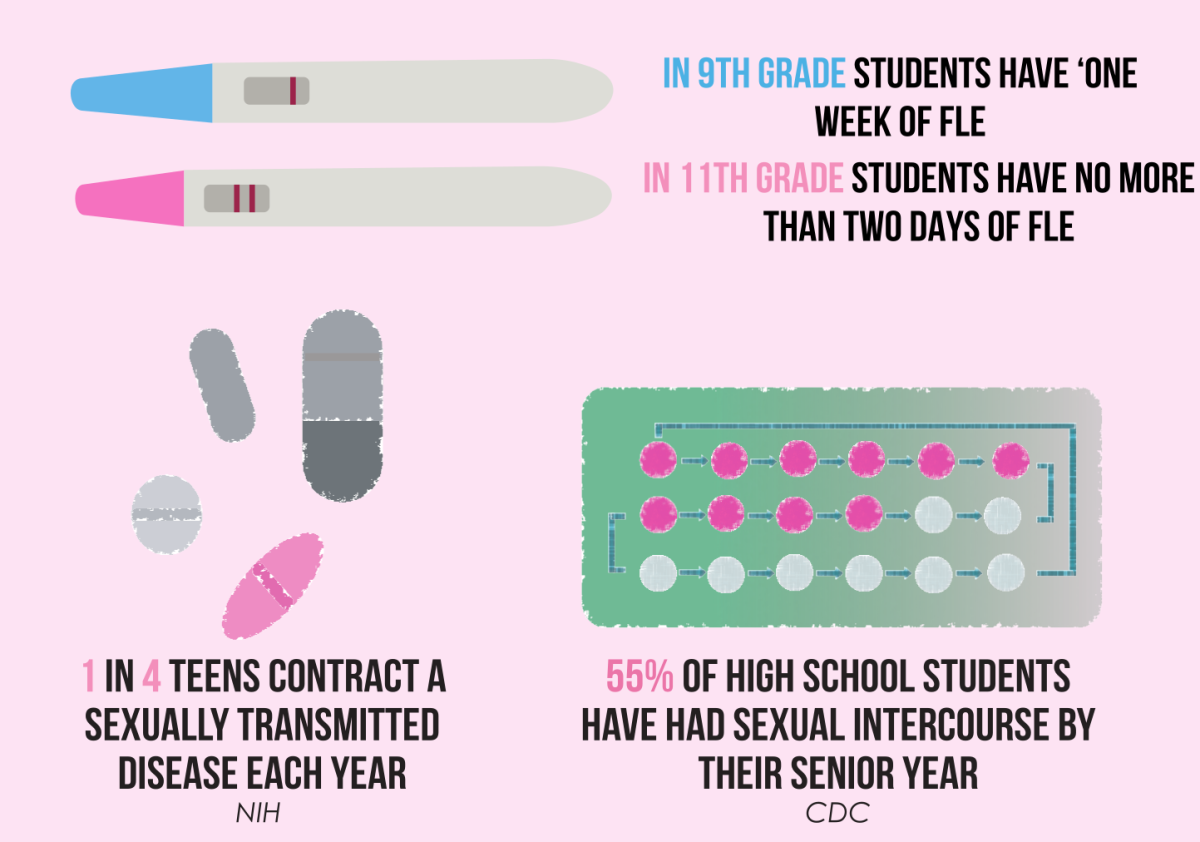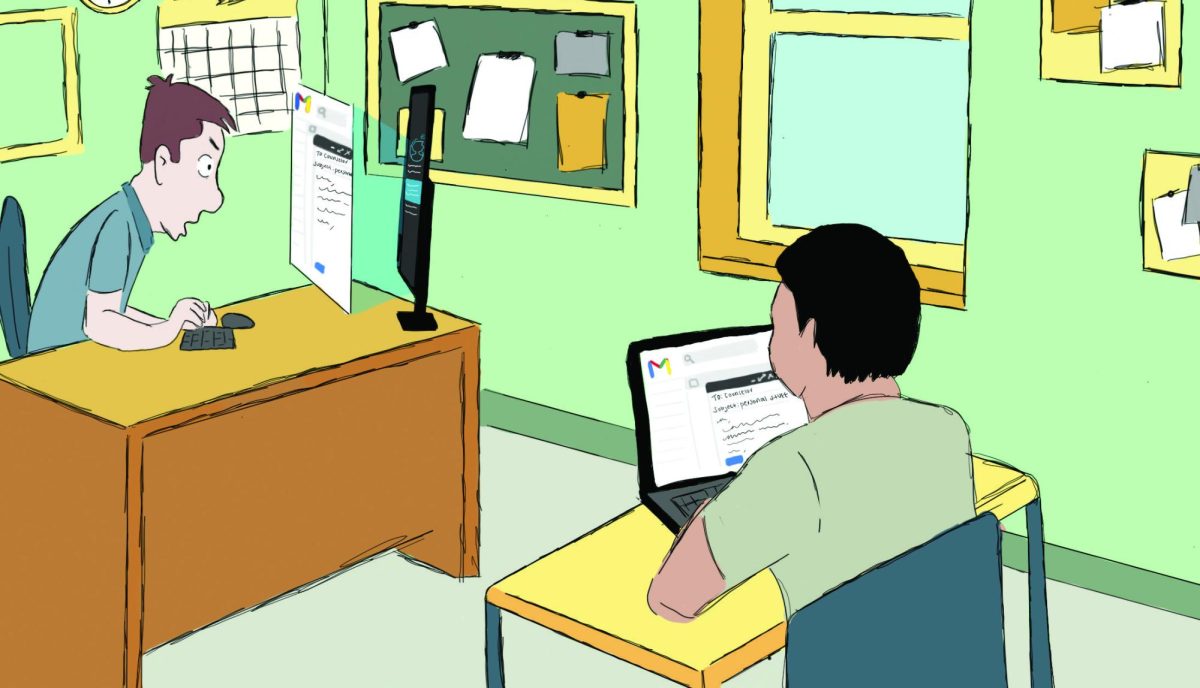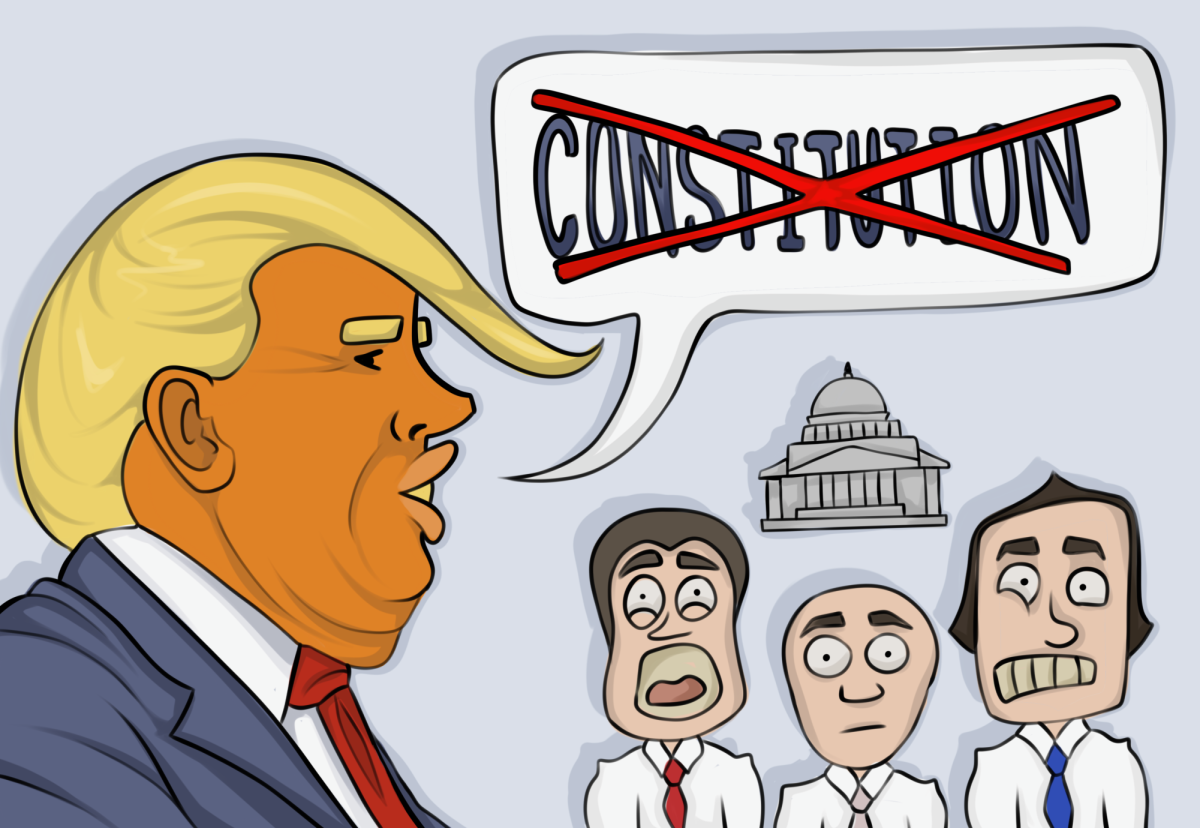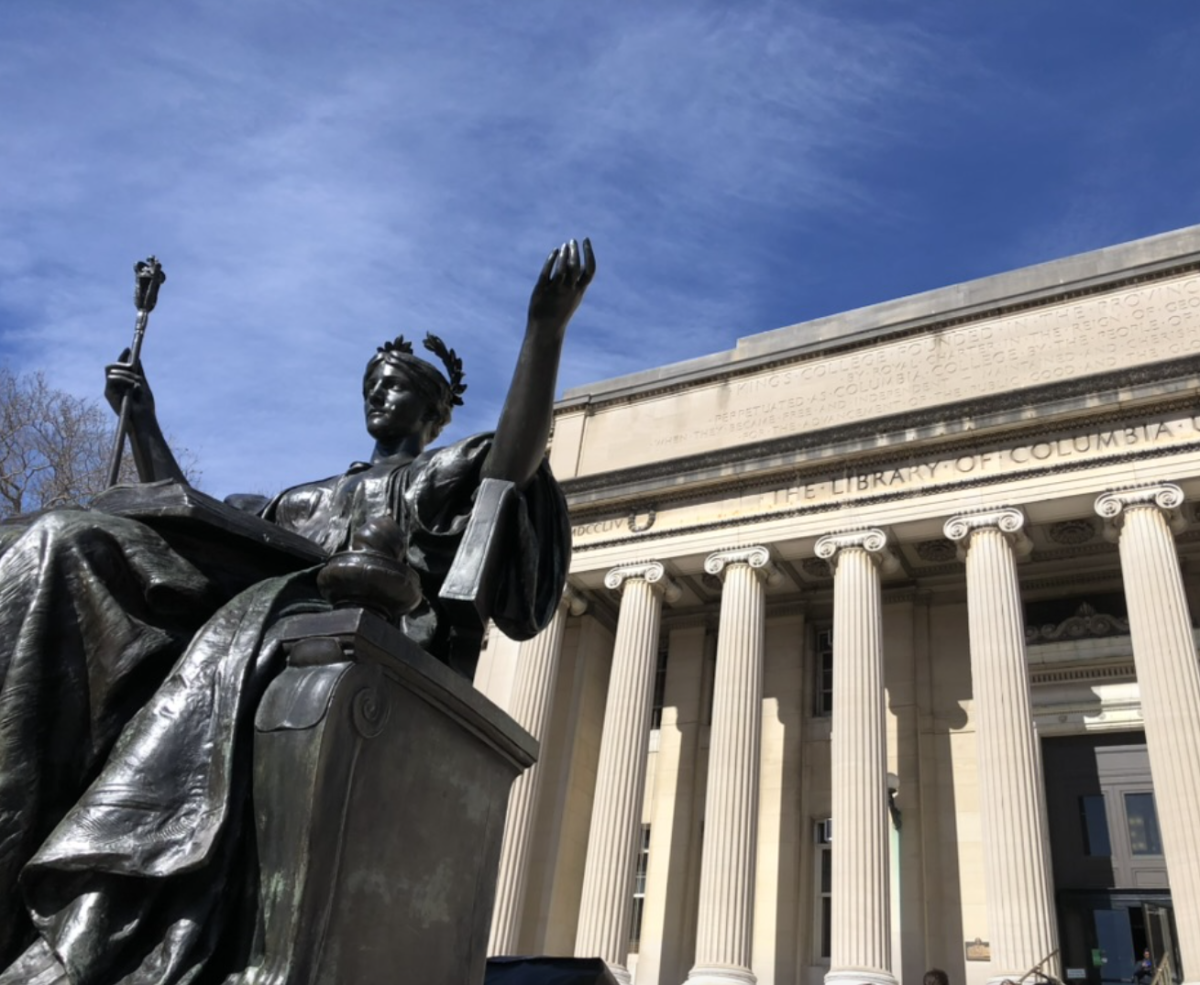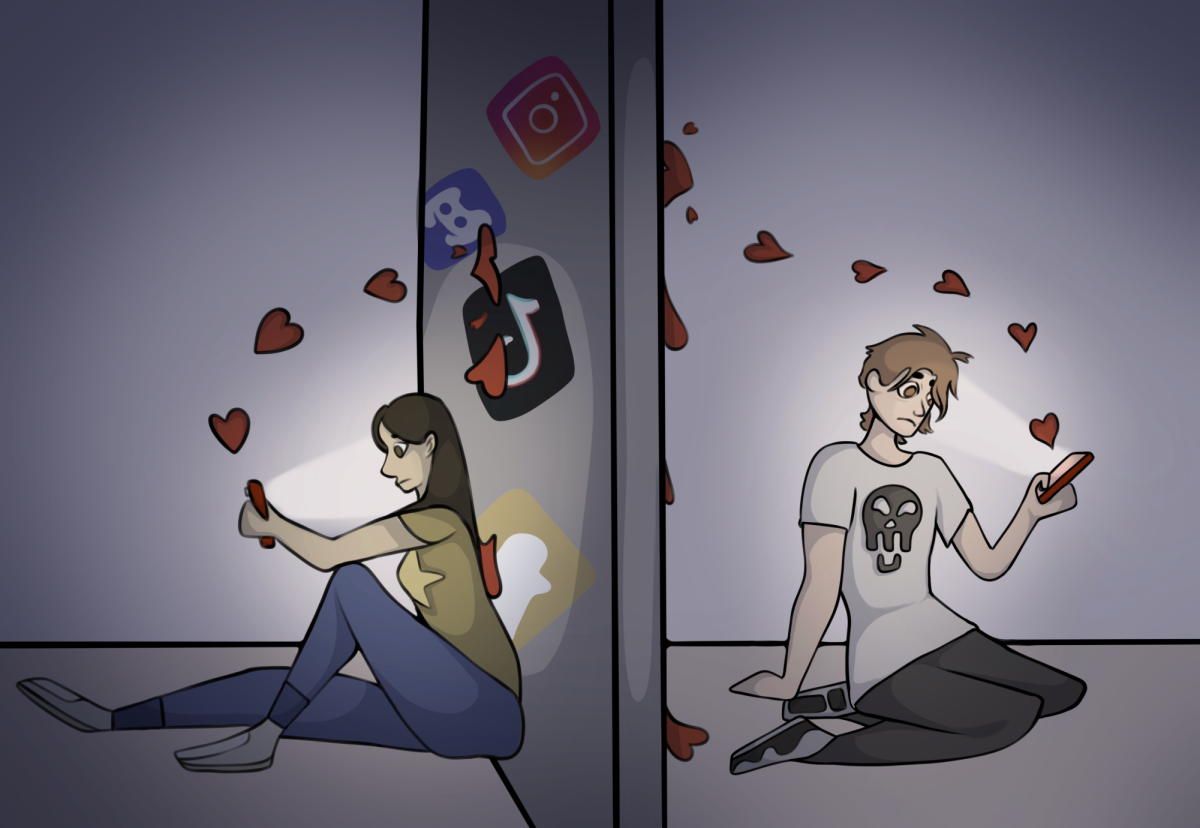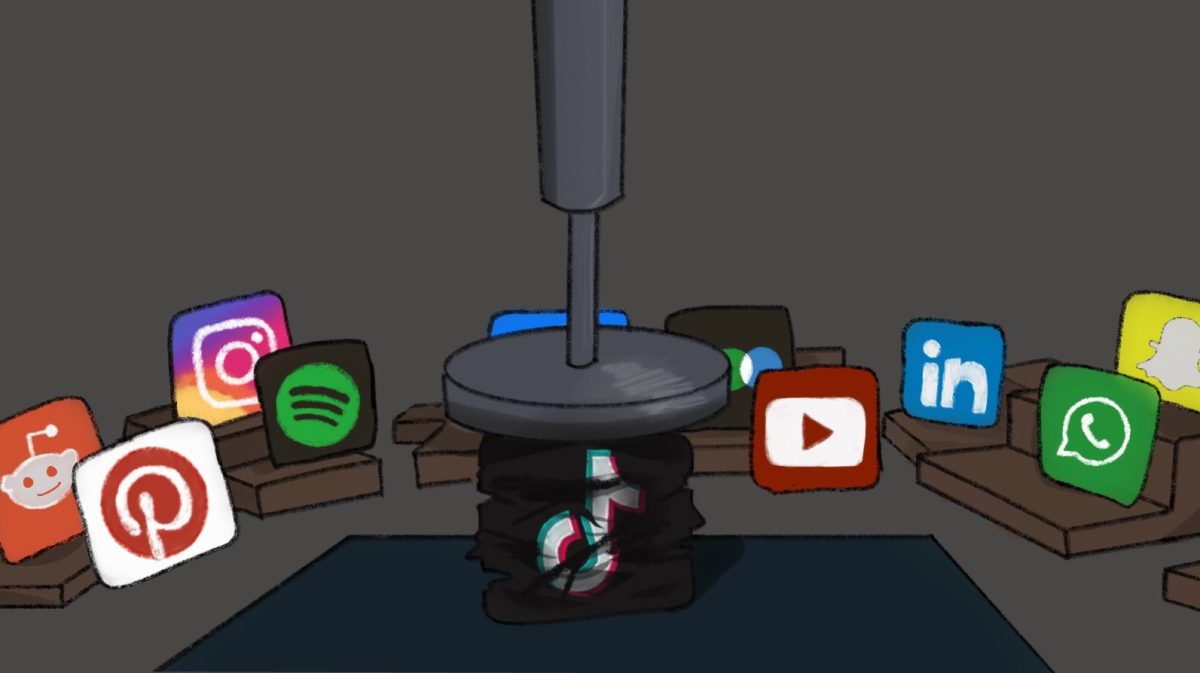This staff editorial reflects the majority opinion of The Highlander’s editorial board.
As the sun set, the light stench of sweat filled the air in the yard while a microphone sounded in the distance. A man began to sing traditional Palestinian songs in Arabic about freedom, culture and the notion of the homeland, the watan. The audio was subpar, yet the young crowd maintained good morale, enthusiastically clapping along. The entire yard — the university yard, or U-Yard, as it is known — was packed with tents. In a matter of days, students there had established a community, complete with shower tents, a medical station and an encampment library.
Five days later at three in the morning, hundreds of riot gear-clad police attacked that very encampment at George Washington University (GWU) in Washington, D.C., and violently dismantled it, arresting dozens of students from an array of local universities, including Georgetown University, GWU and George Mason University.
Now, the university yard at GWU is fitted with massive fenced security walls on all sides and an around-the-clock police presence in hopes of quelling any new student actions.
The attack on the D.C. encampment is just a microcosm of a larger trend of student repression which must come to an end. Thousands of students, faculty and staff have been arrested across campus encampments in more than a dozen states, with the arrests only drawing more unified support in the encampments’ favor.
When Columbia University students first erected their encampment, their numbers were small, only occupying a portion of the University’s south lawn. After the New York Police Department (NYPD) first cleared the encampment and conducted arrests, student support grew, paving the way for a larger encampment in response to the police intervention, occupying a wider area of the lawn.
The national suppression of anti-war protests undermines the democratic principles these institutions claim to uphold and ignores the historical legacy of student activism that has driven significant social change.
When students protest issues that align with views perceived as mainstream, like climate change or gender equality, universities typically refrain from obstructing student actions, even when they are disruptive. However, the response to pro-Palestine activism is drastically different. Even at non-encampment demonstrations that fall in line with university policies, administrators frequently impose strict regulations or resort to punitive measures against organizers. This selective application of free speech rights contravenes the ethos of academic freedom and stifles essential dialogues crucial for students’ intellectual and moral growth.
At the University of Virginia days ago, Charlottesville police, aided by state police equipped with military-grade assault rifles, attacked the university’s encampment. That morning, the university had edited out verbiage in school documents that indicated the encampment complied with official regulations, calling police on the protesters hours later. The quick, violent sweep of the anti-war encampment starkly contrasted the response to neo-Nazi protests on the very same campus seven years ago.
When alt-right, torch-bearing students marched through the city of Charlottesville for the ‘Unite the Right’ rally in 2017, including on University of Virginia grounds, those same militarized state police were nowhere to be found. Despite the Governor’s declaration of the Unite the Right rally as an unlawful assembly, the protesters, who openly chanted “Jews will not replace us” and “the South will rise again,” were allowed to proceed unimpeded.
The double standard is a bad sign, especially as the United States has a rich history of student-led encampments and university building takeovers in response to moral crises. The protests against the Vietnam War in the 1960s and 1970s and the anti-apartheid movements targeting South Africa in the 1980s are prime examples.
In those movements, students occupied buildings, organized teach-ins and mobilized. They pushed for divestment and new policies. These protests were met with state resistance but over time catalyzed significant political and social changes. Those movements did not come without repression either. In fact, the day that the NYPD conducted its now infamous sweep of Hamilton Hall and the Columbia University pro-Palestine encampment — April 30, 2024 — marked the 56th anniversary date of the NYPD sweep of the very same buildings in 1968 to dismantle the anti-Vietnam War demonstrations occurring within the very same university.
Universities today have not learned their lesson. Our nation has a rich heritage of nonviolent civil disobedience for the sake of necessary reforms. The crackdowns ought to come to an end, and schools should negotiate and heed to their students’ calls. Nonetheless, schools find themselves repeating a cycle of history rather than listening to student demands and making amends.



